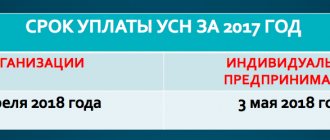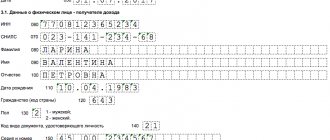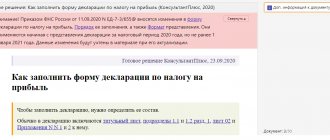A little about the essence of VAT and deductions
Value added tax is included in the price of goods, works or services sold by the VAT payer. It is paid from the buyer’s pocket, but is part of the proceeds, so the seller must transfer it to the budget.
There is also VAT as part of the cost of goods that an individual entrepreneur purchases for his activities. At the same time, the law gives him the right to deduct this tax, that is, to reduce the amount of VAT payable to the budget by its amount. The deduction is provided only to those entities who pay VAT themselves - it is a mechanism for getting rid of double taxation.
To implement the deduction, an individual entrepreneur must keep tax records . All transactions must be accompanied by the preparation of invoices , and must also be reflected in the books of purchases and sales, the journal of issued and received invoices.
If the individual entrepreneur does not have an invoice issued by the seller, then he will not be able to deduct the tax presented as part of the price of the goods.
Basic information about VAT and its deduction:
Can an individual entrepreneur in a special mode work with VAT?
The current version of Chapter 346.11 of the Tax Code categorically answers the question of whether an individual entrepreneur can pay VAT on a “simplified” basis. This norm states that business entities that have chosen the simplified tax system are not recognized as payers of this fiscal fee. A Art. 145 of the Tax Code says that an entrepreneur or organization that has declared its desire to use an exemption from paying a fiscal obligation on added value cannot refuse it within 12 months. This is often the basis for the opinion of inspectors, who exclude invoices from “simplifiers” from the tax credit of their counterparties.
The established practice in tax relations between a client and his simplified supplier shows that a compromise is possible (provided that the latter uses the “Revenue minus expenses” system). It happens that a seller who wants to keep a buyer takes a special path:
- issues an invoice highlighting the outgoing obligation;
- submits reports within the established deadlines and in the form prescribed by law;
- transfers the amount of the issued loan at its own expense (although it cannot take into account the incoming loan).
Objectively, this situation is absolutely a win-win for the country’s budget (the buyer takes into account only the input credit that was paid by his counterparty). But the payer too often has to defend his right to such an operation in court, and statistics show that judges no longer proceed from the “letter of the law”, but from the principle of not causing damage to the state treasury.
Without a trial, such an argument sometimes works only for those who keep records using the simplified tax system “Income and Expenses.” This is because in Art. 346.16 of the Tax Code there is a clause on the possibility of attributing input VAT to the payer’s expenses. For those who use the “Income” system, UTII regimes or pay for a patent, the code does not leave such a “loophole”. An exception includes situations where an entrepreneur combines PSN or UTII with the general system.
Important! Since 2021, tax legislation has recognized entrepreneurs on the Unified Agricultural Tax as payers of the value added tax. At the same time, they become obligated to pay and report only if the annual turnover at the Unified Agricultural Tax exceeds 90 million rubles in 2021 and 80 million rubles in 2021.
Separately, it is worth saying that the “simplified” person will be required to pay a VAT obligation for those goods or services that he imports from outside the Customs Union. No exemption (based on turnover or the special regime used) works in this case. You cannot hide behind a “simplification” even in the case where an entrepreneur is recognized as an agent in relation to other persons, Art. 161 NK.
Calculation of VAT amount
Individual entrepreneurs calculate tax at the same rates as organizations. By default it is 18% , although for some product groups a rate of 10% . If the activity is related to the export of goods and services, it is subject to VAT at a rate of 0% .
It is important to understand the difference between a 0% rate and no VAT on transactions. In the first case, the entrepreneur must confirm the preferential rate with a certain set of documents. If this is not done, you will have to pay VAT at a rate of 18%.
To calculate the tax payable, the entrepreneur determines the tax base - this is the cost of all transactions, including advances, subject to VAT. The corresponding rate is applied to it - 10 or 18%. Also, an individual entrepreneur has the right to claim a tax deduction and reduce the calculated tax by its amount. What you end up with will be the amount of VAT that must be paid to the budget in the reporting period.
Do individual entrepreneurs have to pay income tax?
Profit is the difference between the income received and the costs of obtaining it, and income tax is the main direct fee paid by the entrepreneur to the budget.
American physician, poet and writer Oliver Wendell Holmes Sr. argued: “Taxes are the price we pay for the opportunity to live in a civilized society.”
According to the legislation of the Russian Federation, only legal entities pay income tax. Consequently, when running a business in the form of an individual entrepreneur, no income tax is paid. Instead, the entrepreneur makes other mandatory tax payments determined by the field of activity and the chosen taxation system. A businessman has the right to choose a tax payment system that he considers optimal for his business. There are several types of taxes that replace income tax for individual entrepreneurs.
VAT on advance payments
A special procedure exists for paying VAT on advances received . This obligation is imposed on tax payers in accordance with paragraph 1 of Article 167 of the Tax Code of the Russian Federation. The difference is that in this case you need to apply the estimated VAT rate :
- 10/110 - in relation to goods and services taxed at a rate of 10%;
- 18/110 - in relation to goods and services with a rate of 18%.
The tax base in this case is the amount of the advance received against future supplies.
When receiving an advance, as with a regular sale, the entrepreneur who pays the simplified tax system must issue an invoice . This must be done within 5 days after receiving the money in your bank account.
When the delivery takes place, VAT on the advance payment is deducted, and tax is charged on the entire sales amount. If the advance is returned, that is, the transaction does not take place, the amount of VAT will be deducted.
In connection with advances, one more situation needs to be mentioned. It happens that at the end of the year an entrepreneur received advances from buyers against future deliveries, and from the beginning of the next year he switched to the simplified tax system . The prepayment was received while the individual entrepreneur was a VAT payer; accordingly, he charged tax on it. After that, he switched to a regime that does not involve paying VAT and completed the transaction (sold the goods for which an advance was received). In this case, he will no longer be able to deduct the VAT paid on the advance payment. But he also should not charge sales tax.
Nevertheless, it is recommended to avoid such situations, that is, if you want to switch to a tax regime without VAT from next year, return advances received from them to buyers in advance.
Pros and cons of working with VAT
Some entrepreneurs believe that operating as an individual entrepreneur with VAT is not as profitable as operating under the simplified tax system. They attribute this to the fact that there is no need to pay this tax and keep records of it. Despite this, working with this tax has both advantages and disadvantages.
Individual entrepreneur - what is it, features of activity
The disadvantages of individual entrepreneurs with VAT are:
- obligation to pay this tax. This is the biggest drawback that scares many entrepreneurs;
- VAT is a federal tax. This leads to the fact that a businessman needs to maintain complete accounting records.
The following features follow from this:
- the need for thorough vetting of suppliers;
- carrying out reconciliations of all primary documentation containing the tax in question;
- maintenance of tax registers is required;
- the need to prepare sales and purchase books;
- required to report to the tax authorities;
- the accounting must contain one more object for verification;
- the authorities of the Federal Tax Service are paying closer attention.
When an individual entrepreneur works according to the simplified tax system “Income minus expenses”, then in the case of purchasing goods from suppliers who pay VAT, it provides the opportunity to take into account the purchased VAT in its expenses. If an individual entrepreneur uses the simplified tax system “Income,” then this option is not available.
Note! Individual entrepreneurs who work with VAT are checked by more qualified tax specialists. This tax contains a lot of subtleties, therefore, if it is revealed that something is calculated incorrectly, this will lead to significant amounts of fines and penalties.
Among the advantages of working with the tax in question:
- large enterprises prefer to interact only with those counterparties who are VAT payers. Those individual entrepreneurs who do not use it will most likely receive a refusal from the client or supplier. This leads to the fact that a businessman needs to think about how to increase his competitiveness;
- The main advantage of this tax is the possibility of making a deduction for purchased goods or services. VAT is refunded in the amount that was paid in the cost of the goods. This may allow you to save a good amount. However, if a product was sold to a buyer under the general tax regime without tax, then it is not subject to reimbursement.
If the individual entrepreneur is a tax agent for VAT
We mentioned above that sometimes even without being a VAT payer, an entrepreneur is obliged to pay it. In particular, when he plays the role of a tax agent. Most often this happens in the following cases:
- When an individual entrepreneur purchases goods, work or services from a foreign person who is not registered with the Russian tax authorities.
- When an entrepreneur carries out intermediary activities on behalf of a foreign organization and participates in settlements.
- When the object of the transaction is state or municipal property , that is, when an entrepreneur buys or rents it.
In this case, despite the fact that the entrepreneur does not pay his own VAT, he is obliged to keep VAT records, accrue and pay taxes to the budget, and also submit reports in a timely manner.
About VAT tax agents:
OSN: definition of the concept
The general taxation system is an unofficial concept, despite its widespread use.
The Tax Code of the Russian Federation does not contain a direct correspondence for it. Moreover, in the main Russian tax law source there is no official interpretation of the term “general taxation system”. Therefore, for an individual entrepreneur, before thinking about the advantages and disadvantages of the special tax system, it will be useful to understand what is meant by the corresponding taxation system.
In accordance with the generally accepted definition, an individual entrepreneur is recognized as carrying out activities under the special tax regime if he does not apply any of the following special tax regimes:
- simplified tax system;
- Unified Agricultural Sciences;
- PSN.
A special case is the use by an entrepreneur of UTII. This special tax regime can be applied simultaneously with the SST, but for different types of activities (if, of course, among them there are those that are compatible with UTII in accordance with clause 2 of Article 346.26 of the Tax Code of the Russian Federation).
From 2021, UTII has been abolished throughout Russia. Find out what an entrepreneur should do if he combines UTII and OSNO in the Typical Situation from ConsultantPlus. If you do not have access to the K+ system, get a trial online access for free.
The application of the OSN presupposes the mandatory payment by individual entrepreneurs of the following basic taxes:
- VAT;
- personal income tax;
- property tax.
The main criterion for choosing one tax regime or another, both for individual entrepreneurs and legal entities, is the expected tax burden. What can it be like in AHF?
VAT for an entrepreneur using “simplified”
Taxpayers under the simplified tax system are exempt from paying VAT. But sometimes, due to ignorance or by meeting the counterparty halfway, such entities can issue invoices and allocate the amount of tax in them. In this case, the tax will be payable even though the individual entrepreneur is not the payer.
In addition, there are other cases when an individual entrepreneur using the simplified tax system is required to pay VAT:
- If he works under a commission agreement , guarantee or other intermediary agreement.
- If he entered into a simple partnership , entered into a trust management agreement.
Moreover, the mentioned legal relations arise only if the entrepreneur, as an object of taxation under the simplified tax system, uses income reduced by the amount of expenses.
An individual entrepreneur using the simplified tax system who pays VAT in connection with agency activities is not considered a payer of this tax. Nevertheless, he is obliged to take into account incoming and outgoing invoices, as well as submit reports to the Federal Tax Service. However, he does not receive the right to deduct input tax.
Does the individual entrepreneur pay VAT?
Chapter 21 of the Tax Code of the Russian Federation contains the wording of the VAT tax. The taxation system affects whether an individual entrepreneur pays VAT or not. A businessman decides for himself which system to work on so that his business brings maximum income.
Art. 143 of the Tax Code of the Russian Federation determines those who must pay this tax. These include: organizations, individual entrepreneurs and those who are payers of this tax.
Is it possible for an individual entrepreneur to work with VAT?
Important! To work with some counterparties, it is necessary to conduct business with VAT. This is especially true for large foreign companies.
If you open an individual entrepreneur on a common system, then payment of VAT is required.
In the following systems, the tax in question is not paid, except for certain exceptions:
- UTII - can only be applied to certain types of activities. Its calculation is carried out according to a certain formula;
- The simplified tax system is the most popular system among entrepreneurs;
- PSN - involves payment for a patent. Can be used for specific types of activities;
- Unified agricultural tax - used only by agricultural organizations.
Reporting
Starting from 2015, you can submit your VAT return exclusively in electronic form . This applies to both organizations and individual entrepreneurs. You can submit a declaration through the program for interaction with the Federal Tax Service. A report for each quarter is submitted no later than the 25th of the following month.
You should not neglect this responsibility, since the Tax Code provides for fines for this. Moreover, if the declaration is not received by the tax authority within 10 days after the deadline, the entrepreneur’s account may be blocked.
About penalties for failure to submit a declaration:
Taxes depending on the chosen taxation system
In total, there are five tax regimes for individual entrepreneurs (one general and four special):
- The general taxation system is OSN;
- Simplified taxation system - simplified tax system;
- Patent taxation system - PSN;
- Unified agricultural tax - Unified Agricultural Tax.
- Professional income tax – NIP.
You can learn more about each tax regime in force in Russia on this page.
General taxation of individual entrepreneurs in 2021 - 2021: features
An individual entrepreneur working for OSN and using property in his activities is considered as a payer of property tax in the status of an individual. Moreover, in 2021-2021 the tax is calculated based on the cadastral value if:
- The individual entrepreneur uses property for commercial purposes (clause 3 of Article 402 of the Tax Code of the Russian Federation, subclause 1, 2 of clause 1 of Article 378.2 of the Tax Code of the Russian Federation);
- in the region in which the individual entrepreneur operates, a legal regulation has been adopted, where the rates for commercial property tax are fixed (clause 2 of article 378.2 of the Tax Code of the Russian Federation).
If both criteria are met, the individual entrepreneur pays property tax based on its cadastral value (clause 1 of Article 378.2 of the Tax Code of the Russian Federation) based on a notification from the Federal Tax Service (clause 2 of Article 409 of the Tax Code of the Russian Federation).
See also “Step-by-step instructions for calculating property tax from the cadastral value.”
What other taxes and contributions do the individual entrepreneur pay on OSNO, see the Typical situation from ConsultantPlus. And after studying this material, you will learn what kind of reporting to submit to an entrepreneur under the general taxation system. Full trial access to K+ is available for free.









